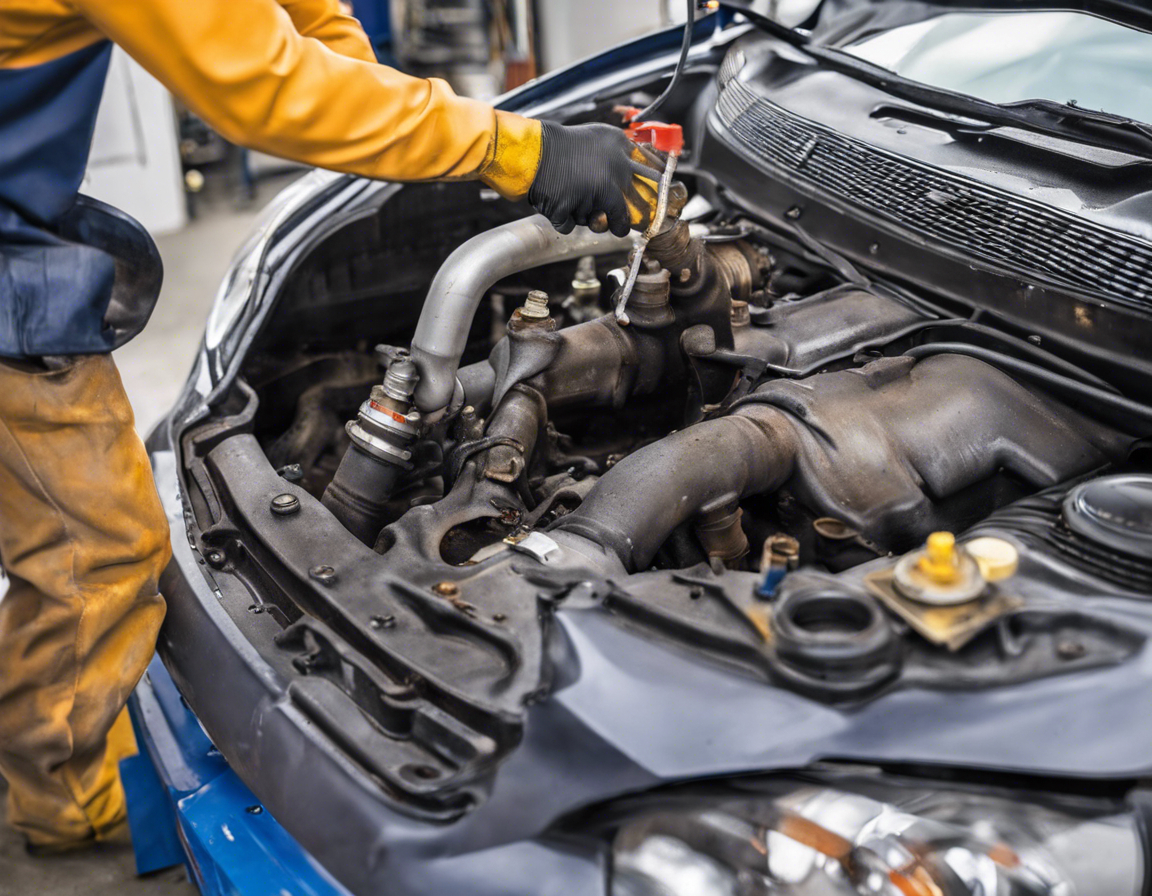Are you experiencing oil leaks in your vehicle and wondering how to solve this common issue? Oil leaks can be a nuisance and if left unattended, they can lead to more serious problems with your car’s engine. In this comprehensive guide, we will cover everything you need to know about identifying, diagnosing, and fixing oil leaks in your vehicle.
Identifying Oil Leaks
Signs of Oil Leaks
- Oil spots or puddles under your car
- Burning oil smell coming from the engine
- Low oil levels indicated on the dipstick
- Visible oil stains on the engine or under the hood
- Smoke coming from the engine due to oil dripping onto hot components
Diagnosing the Source of the Oil Leak
Common Areas for Oil Leaks
- Oil pan gasket
- Valve cover gasket
- Oil filter
- Oil drain plug
- Camshaft seal
- Crankshaft seal
- Oil cooler
Using UV Dye
- Add UV dye to the oil
- Inspect under UV light to locate the source of the leak
- Helps in pinpointing the exact location of the leak
Fixing Oil Leaks
DIY Solutions
- Tightening loose bolts or plugs
- Replacing gaskets or seals
- Using sealants for small leaks
- Fixing or replacing damaged components
Professional Repairs
- Mechanical repair shops can provide expert assistance
- Specialized equipment for detecting hard-to-find leaks
- Replacing damaged or worn-out parts
- Ensuring proper installation to prevent future leaks
Preventing Future Oil Leaks
- Regular maintenance and oil changes
- Using high-quality oil and filters
- Checking for leaks during routine inspections
- Maintaining proper oil levels and pressures
- Addressing leaks promptly to avoid costly repairs
Frequently Asked Questions (FAQs)
- Q: Is it safe to drive with an oil leak?
-
A: It is not recommended to drive with an oil leak as it can lead to engine damage and overheating.
-
Q: How much does it cost to repair an oil leak?
-
A: The cost of repairing an oil leak can vary depending on the source of the leak and the extent of the damage. It can range from a few dollars for DIY solutions to hundreds of dollars for professional repairs.
-
Q: Can I use stop leak additives to fix an oil leak?
-
A: While stop leak additives can temporarily fix minor leaks, they are not a permanent solution and may cause damage to your engine in the long run.
-
Q: How can I tell if my car is leaking oil or another fluid?
-
A: Oil leaks are typically darker in color and have a distinct oily smell. Other fluids like coolant or transmission fluid have different colors and viscosity.
-
Q: Can I drive my car to the mechanic with an oil leak?
- A: If the oil leak is severe, it is best to have your car towed to the mechanic to prevent further damage to the engine.
In conclusion, addressing oil leaks in a timely manner is crucial to maintaining the health and performance of your vehicle. By identifying, diagnosing, and fixing oil leaks promptly, you can prevent more serious issues down the road. Remember to seek professional help if needed and prioritize regular maintenance to keep your car running smoothly for years to come.
